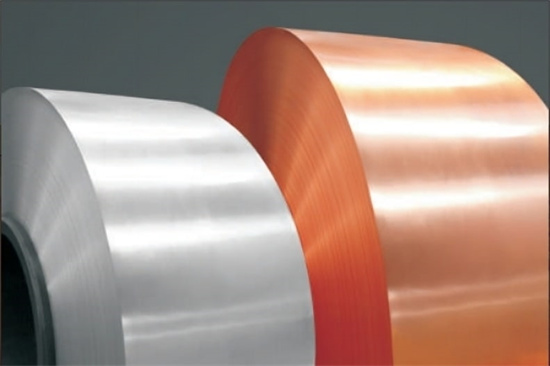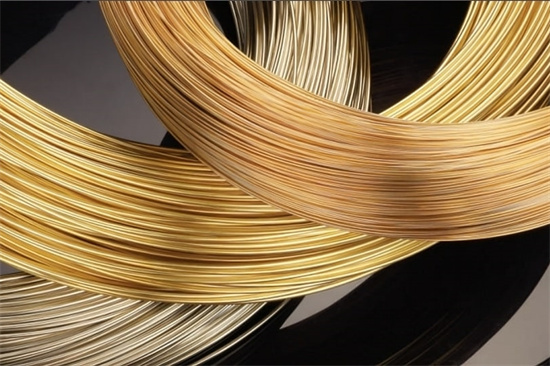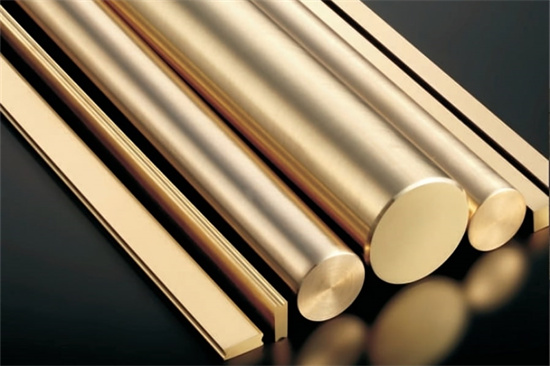


Ultimate Special Alloy Materials Breakdown: Discover the Best Compositions and Uses
Low MOQ
Provide low minimum order quantity to meet different needs.
OEM & ODM
Provide customized products and design services to meet unique customer needs.
Adequate Stock
Ensure fast order processing and provide reliable and efficient service.
Customer Satisfaction
Provide high quality products with customer satisfaction at the core.
share this article
Table of Contents
When it comes to engineering and manufacturing, special alloy materials are the unsung heroes that make extraordinary feats of technology possible. Whether you’re working in aerospace, automotive, medical devices, or even electronics, you’ll find that special alloys are often the backbone of your most critical components.
In this extensive guide, we’re going to dive deep into the world of special alloy materials—exploring their composition, properties, applications, and much more. We’ll look at why these materials are chosen over standard metals and how they can solve specific challenges across various industries.
If you’re looking to improve your understanding of special alloys and how they can benefit your projects, this article is for you. We’ll break down the key concepts with an informal tone and clear explanations, making it easy to grasp even the most complex material sciences.
Overview of Special Alloy Materials
At their core, special alloy materials are combinations of metals and other elements that have been engineered to enhance specific properties. These alloys are “special” because they offer unique characteristics that standard metals like steel, aluminum, or copper simply cannot provide. Whether it’s high strength at extreme temperatures, resistance to corrosion, or superior electrical conductivity, these alloys are tailor-made to meet the stringent demands of cutting-edge applications.
Why Special Alloys Matter
You might be wondering, why not just use standard metals? The answer lies in the limitations of pure metals. For example, while steel is strong, it can rust. Aluminum is lightweight, but it lacks strength. Copper conducts electricity well, but it’s too soft for many structural applications. Special alloys overcome these limitations by combining the best properties of different metals and sometimes non-metals.
Take nickel alloys for instance—they’re widely used in aerospace because they can withstand the extreme temperatures experienced by jet engines. Or consider titanium alloys used in medical implants because of their biocompatibility and resistance to corrosion.
Types of Special Alloy Materials: Composition and Properties
There are many different types of special alloy materials, each designed for specific applications and performance requirements. Let’s explore some of the most common and important ones, breaking down their composition, key properties, and where you’ll find them in use.
| Alloy Type | Primary Composition | Key Properties | Common Applications |
|---|---|---|---|
| Nickel Alloys | Nickel (50-70%), Chromium, Iron, Molybdenum, Copper | High-temperature strength, corrosion resistance, oxidation resistance. | Aerospace, gas turbines, chemical processing equipment. |
| Titanium Alloys | Titanium (85-99%), Aluminum, Vanadium | Lightweight, exceptional strength-to-weight ratio, corrosion resistant, biocompatible. | Medical implants, aerospace, marine applications. |
| Superalloys | Nickel, Cobalt, or Iron-based, with Chromium, Molybdenum | Extreme high-temperature strength, oxidation and creep resistance. | Jet engines, gas turbines, nuclear reactors. |
| Aluminum Alloys | Aluminum (90-99%), Magnesium, Silicon, Copper, Zinc | Lightweight, good corrosion resistance, medium strength, easy to form and machine. | Automotive, aerospace, construction, packaging. |
| Copper Alloys (Bronze, Brass) | Copper (60-90%), Tin or Zinc, Lead, Phosphorus, Nickel | Excellent electrical and thermal conductivity, corrosion resistance, antimicrobial properties. | Electrical, plumbing, marine, musical instruments. |
| Stainless Steel Alloys | Iron (50-80%), Chromium, Nickel, Molybdenum, Carbon | Corrosion resistance, strength, durability, aesthetically appealing. | Automotive, medical devices, kitchen appliances. |
| Tool Steels | Iron (70-90%), Carbon, Tungsten, Chromium, Vanadium | High hardness, wear resistance, retains cutting edge at high temperatures. | Cutting tools, dies, molds, industrial machinery. |
| Magnesium Alloys | Magnesium (90-98%), Aluminum, Zinc, Manganese | Extremely lightweight, good strength-to-weight ratio, excellent for weight-sensitive applications. | Aerospace, automotive, electronics, sporting goods. |
Nickel Alloys: The Heat-Resistant Workhorse
Nickel-based alloys are known for their ability to withstand extreme temperatures and corrosive environments. They are often used in aerospace and chemical processing industries where components are exposed to harsh conditions. One of the most famous nickel alloys is Inconel, which retains its strength even when subjected to the intense heat of jet engines or nuclear reactors.
Titanium Alloys: The Lightweight Champion
Titanium alloys are the go-to choice for applications where strength and lightweight properties are both critical. With a strength-to-weight ratio that’s much higher than steel, titanium alloys are ideal for aerospace parts or medical implants like artificial joints. The addition of elements like aluminum and vanadium improves the alloy’s strength and malleability, making it easier to work with.
Applications of Special Alloy Materials
The applications for special alloy materials are vast and varied. From high-performance jet engines to the implants keeping people alive, these alloys play a pivotal role in modern technology. Let’s take a look at where these materials are commonly used and how they’re transforming industries.
| Industry | Common Alloy Used | Why This Alloy Is Used |
|---|---|---|
| Aerospace | Nickel Alloys, Titanium Alloys | High-temperature resistance, lightweight, corrosion resistance. |
| Automotive | Aluminum Alloys, Stainless Steel | Lightweight for fuel efficiency, corrosion resistance, durability. |
| Medical Devices | Titanium Alloys, Stainless Steel | Biocompatibility, corrosion resistance, strength, non-reactive with human tissue. |
| Electronics | Copper Alloys, Aluminum Alloys | Excellent electrical conductivity, lightweight, corrosion resistance. |
| Marine Applications | Copper-Nickel Alloys, Stainless Steel | Resistance to saltwater corrosion, durability in harsh environments. |
| Energy and Power | Superalloys, Nickel Alloys | High-temperature strength for turbines, corrosion resistance in chemical power plants. |
| Construction | Stainless Steel, Aluminum Alloys | Durability, corrosion resistance, strength, low maintenance. |
Aerospace Industry
In the aerospace industry, materials must withstand extreme temperatures, high stress, and corrosive environments. Nickel alloys and superalloys are commonly used in jet engines and turbines because they can maintain their strength even at temperatures exceeding 1,000°C. Titanium alloys are preferred for airframe structures due to their high strength-to-weight ratio, which is critical for reducing aircraft weight and improving fuel efficiency.
Medical Devices
The medical field demands materials that are biocompatible, corrosion-resistant, and non-toxic. Titanium alloys, particularly Ti-6Al-4V (titanium with 6% aluminum and 4% vanadium), are extensively used for implants such as hip replacements and dental implants. These materials not only integrate well with human tissue but also resist the corrosive effects of bodily fluids, ensuring longevity and reliability.
Specifications, Sizes, and Industry Standards for Special Alloy Materials
When selecting special alloy materials for your project, it’s important to adhere to industry standards and specifications to ensure the material meets the required mechanical properties and performance criteria. Each alloy has its own set of guidelines for composition, dimensional tolerances, and manufacturing processes.
Specifications and Standards for Special Alloy Materials
| Alloy Type | Standard Sizes Available | Industry Standards |
|---|---|---|
| Nickel Alloys | Rods: Ø 10 mm to Ø 200 mm, Sheets: 1 mm to 50 mm thick | ASTM B160, EN 10095, ISO 6208 |
| Titanium Alloys | Plates: 2 mm to 100 mm thick, Bars: Ø 10 mm to Ø 300 mm | ASTM B348, AMS 4928, ISO 5832-3 |
| Superalloys | Bars: Ø 10 mm to Ø 250 mm, Sheets: 1 mm to 30 mm thick | ASTM B637, AMS 5662, ISO 15156 |
| Aluminum Alloys | Sheets: 0.5 mm to 30 mm thick, Rods: Ø 5 mm to Ø 150 mm | ASTM B209, EN 485, ISO 6361 |
| Copper Alloys | Sheets: 0.5 mm to 50 mm thick, Rods: Ø 5 mm to Ø 200 mm | ASTM B36, EN 1652, ISO 1338 |
| Stainless Steel Alloys | Plates: 1 mm to 100 mm thick, Rods: Ø 6 mm to Ø 500 mm | ASTM A240, EN 10088, ISO 15510 |
For example, ASTM B348 defines the specifications for titanium alloy bars and billets, ensuring they meet the necessary strength and corrosion resistance standards required for aerospace and medical applications. Similarly, AMS 5662 outlines the properties of superalloys used in high-temperature applications, ensuring they can withstand the extreme conditions experienced in jet engines.
Suppliers and Pricing for Special Alloy Materials
The price of special alloy materials can vary significantly depending on the type of alloy, form (bars, sheets, rods), and market demand. Additionally, supply chain factors such as the cost of raw materials and manufacturing processes can influence the final price.
Leading Suppliers and Pricing Estimates for Special Alloy Materials
| Supplier | Location | Alloy Types Available | Price per kg (estimate) | Minimum Order Quantity |
|---|---|---|---|---|
| ATI Metals | USA, Global | Nickel Alloys, Titanium Alloys, Superalloys | $30 – $100 | 50 kg |
| VSMPO-AVISMA | Russia | Titanium Alloys | $40 – $150 | 100 kg |
| Kobe Steel | Japan, Global | Aluminum Alloys, Copper Alloys | $5 – $25 | 500 kg |
| Materion Corporation | USA | Beryllium Copper, Superalloys | $70 – $200 | Custom orders |
| Outokumpu | Finland, Global | Stainless Steel Alloys | $10 – $50 | 200 kg |
Comparing the Pros and Cons of Special Alloy Materials
Choosing the right special alloy material for your application often requires balancing the advantages and limitations of each option. Let’s break down the pros and cons of several common alloy materials to help you make an informed decision.
Advantages and Limitations of Special Alloy Materials
| Special Alloy | Advantages | Limitations |
|---|---|---|
| Nickel Alloys | High-temperature resistance, excellent corrosion resistance, strength retention. | Expensive, difficult to machine, requires specialized welding techniques. |
| Titanium Alloys | Lightweight, high strength-to-weight ratio, biocompatible, corrosion-resistant. | Expensive, difficult to machine, requires special handling. |
| Superalloys | Extreme high-temperature strength, oxidation resistance, creep resistance. | Very expensive, limited machinability, requires expensive manufacturing processes. |
| Aluminum Alloys | Lightweight, corrosion-resistant, easy to machine, affordable. | Lower strength compared to steel or titanium, not suitable for high-temperature applications. |
| Copper Alloys | Excellent electrical and thermal conductivity, good corrosion resistance, antimicrobial. | Soft material, lower strength, can be expensive depending on alloy composition. |
| Stainless Steel Alloys | Corrosion-resistant, durable, strong, aesthetically pleasing. | Heavier than aluminum or titanium, can be expensive depending on grade. |
Nickel Alloys vs. Titanium Alloys
When comparing nickel alloys to titanium alloys, the primary distinction lies in their temperature resistance and weight. Nickel alloys excel in high-temperature environments, making them ideal for aerospace and power generation. However, they are typically heavier than titanium alloys, which are preferred in applications where lightweight strength is crucial, such as medical implants and aircraft frames.
Aluminum Alloys vs. Stainless Steel Alloys
Aluminum alloys are often chosen for their lightweight and affordability, especially in industries like automotive and construction where reducing weight can lead to better fuel efficiency or easier installation. On the other hand, stainless steel alloys offer superior strength and corrosion resistance, making them better suited for environments where durability and aesthetic appeal are important, such as in kitchen appliances or medical instruments.
FAQs About Special Alloy Materials
| Question | Answer |
|---|---|
| What is a special alloy material? | A special alloy is a metal that has been engineered with specific elements to improve its properties, such as strength, heat resistance, or corrosion resistance. |
| Why are special alloy materials important? | They offer unique properties that standard metals can’t provide, making them essential for high-performance applications. |
| Which alloy is best for high-temperature applications? | Nickel alloys and superalloys are ideal due to their ability to retain strength at extreme temperatures. |
| What are the most commonly used special alloys? | Some of the most commonly used special alloys include nickel alloys, titanium alloys, superalloys, and aluminum alloys. |
| How much do special alloy materials cost? | Prices vary depending on the alloy type and market conditions, but they can range from $5 to $200 per kg. |
| Are special alloys difficult to machine? | Some special alloys, like nickel and titanium alloys, can be challenging to machine due to their hardness and strength. |
Conclusion
Special alloy materials are indispensable in modern engineering and manufacturing. Whether you’re designing jet engines, medical implants, or automotive components, the right alloy can make all the difference. By understanding the types, properties, and applications of these materials, you’ll be better equipped to choose alloys that meet your project’s specific needs.
From nickel alloys that withstand extreme heat to titanium alloys that offer the perfect blend of strength and lightweight properties, these materials are the building blocks of innovation across industries.
Maybe you want to know more about our products, please contact us
Get Latest Price
About Met3DP
Product Category
HOT SALE
CONTACT US
Any questions? Send us message now! We’ll serve your request with a whole team after receiving your message.

Metal Powders for 3D Printing and Additive Manufacturing
COMPANY
PRODUCT
cONTACT INFO
- Qingdao City, Shandong, China
- [email protected]
- [email protected]
- +86 19116340731








